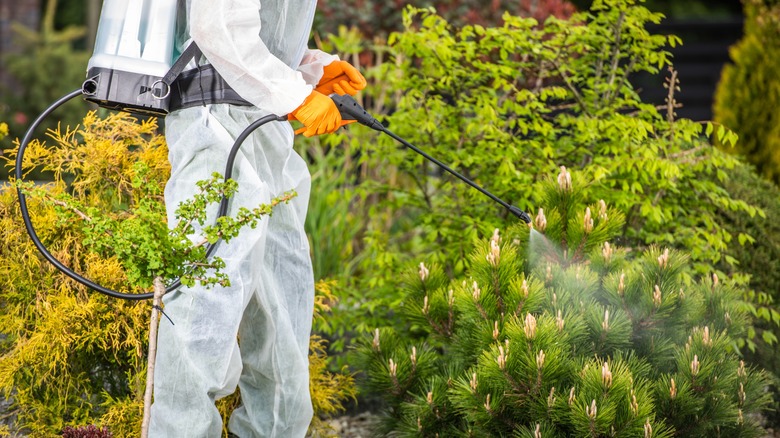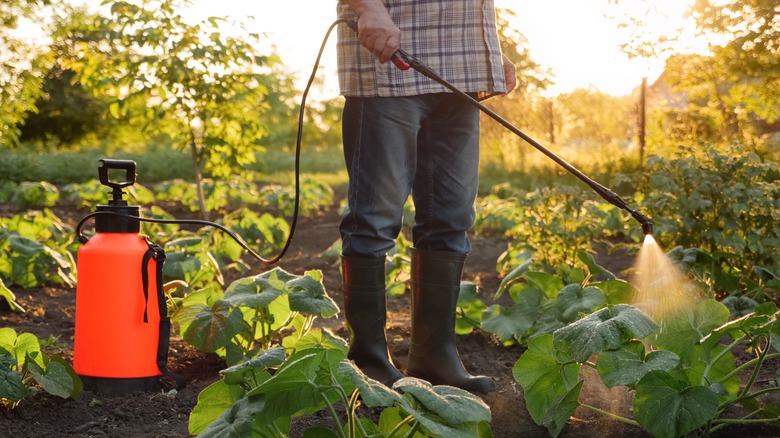When Is It Safe To Water Your Lawn After A Pre-Emergent Application?
Timing is crucial in lawn care, especially after applying a pre-emergent herbicide. These are essentially a form of chemical defense against weeds. They work not by killing existing weeds but by preventing new ones from sprouting. Once you've laid down this defense, you might wonder, "When can I safely water my lawn?" Experts agree that you should give the herbicide some time to do its job. This waiting period ensures the product remains effective and isn't washed away prematurely. However, the timing largely depends on the type of pre-emergent you're using. The two main types are granular and liquid pre-emergents. Both types rely heavily on their integration with the soil, significantly affected by the timing and amount of watering post-application.
When using the granular formula, the clock starts ticking the moment those granules hit the soil. You've got a window of about 10 to 14 days to ensure they're correctly watered in, either with your own irrigation efforts or from rainfall. On the flip side, if you opt for the liquid route, the approach shifts slightly. Once you've sprayed your lawn, the liquid doesn't demand immediate soaking. In fact, it's best to let it sit and dry for about 2 hours to ensure it's firmly settled in. That said, holding off on any major watering for 24 hours is a smart move. Remember that too much water too soon can dilute the herbicide, diminishing its weed-preventing capabilities. Conversely, insufficient watering may result in the herbicide not being activated at all.
Choosing the right pre-emergent
To choose the right pre-emergent herbicide, weigh the benefits of the liquid versus granular forms. Liquid pre-emergents are often celebrated for their ease of application, precision, and ability to provide uniform coverage. They penetrate the soil quickly, establishing a barrier against weed seeds efficiently. This method is particularly beneficial for tackling large areas or those with a variety of terrain, as the liquid formula can easily adapt to different landscapes. On the other hand, granular pre-emergents have their own set of advantages. They are favored for their fast application, allowing homeowners to visually confirm coverage as they spread the granules across the lawn. This type can be especially useful for those who prefer a more controlled approach to lawn care.
When it comes to popular pre-emergent products, a few names stand out. You can opt for products like prodiamine, benefin, and dithiopyr. Each of these comes in both granular and liquid formulations. They also have specific application instructions and benefits, making it important to select the one that best matches your lawn's needs and your personal preferences in lawn maintenance. Ultimately, the choice between liquid and granular pre-emergents boils down to your specific lawn care goals, the types of weeds you're combating, and the ease of application you desire.
Tips for using pre-emergent herbicides
To properly get rid of weeds with pre-emergent herbicides, there's a bit of a checklist to run through. First, you'll need to apply the herbicide just before those weed seeds start their growth spurt. It's all about beating them to the punch and keeping your garden or lawn in tip-top shape. On that note, a quick cleanup job in the area is also needed. Clear away any dead vegetation, random trash, or other bits and pieces. When you're ready to apply the solution, thoroughly read and follow the directions on the product's label. If you're looking to fine-tune your approach, pay attention to the weather forecast for when you plan to apply the herbicide. Some experts advise applying it just before a gentle rain comes.
Still on the topic of planning, for year-round protection, you'll also want to schedule two key application times: once in the fall to keep winter weeds at bay and again in the spring to prevent the summer ones from sprouting. After you've applied the herbicide, try to keep the soil disturbance or foot traffic to a minimum. And a heads up if you're looking to sow seeds in the same spot you're treating: pre-emergent herbicides aren't picky. They'll inhibit just about any seed from germinating, not just weeds. So, plan accordingly, and maybe skip the herbicide in areas where you hope to see new plants pop up.


